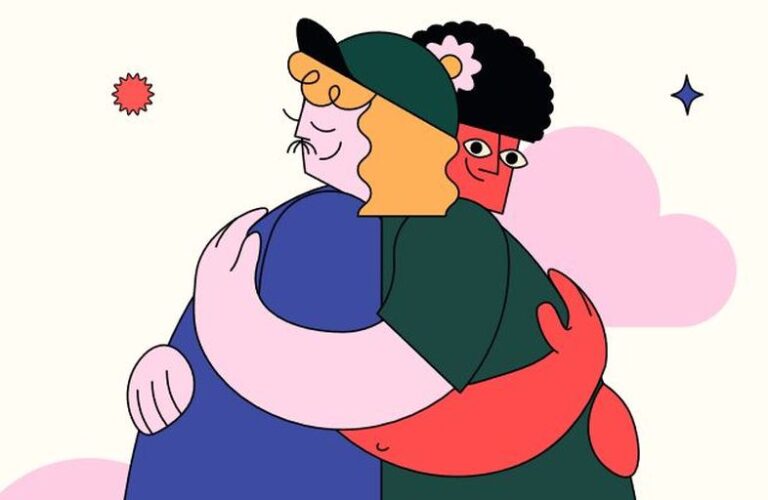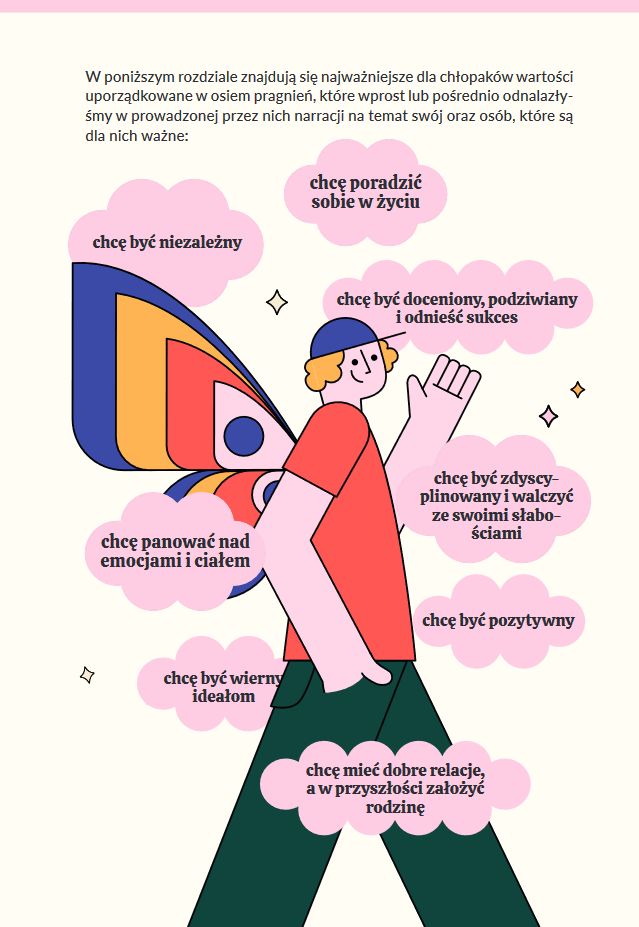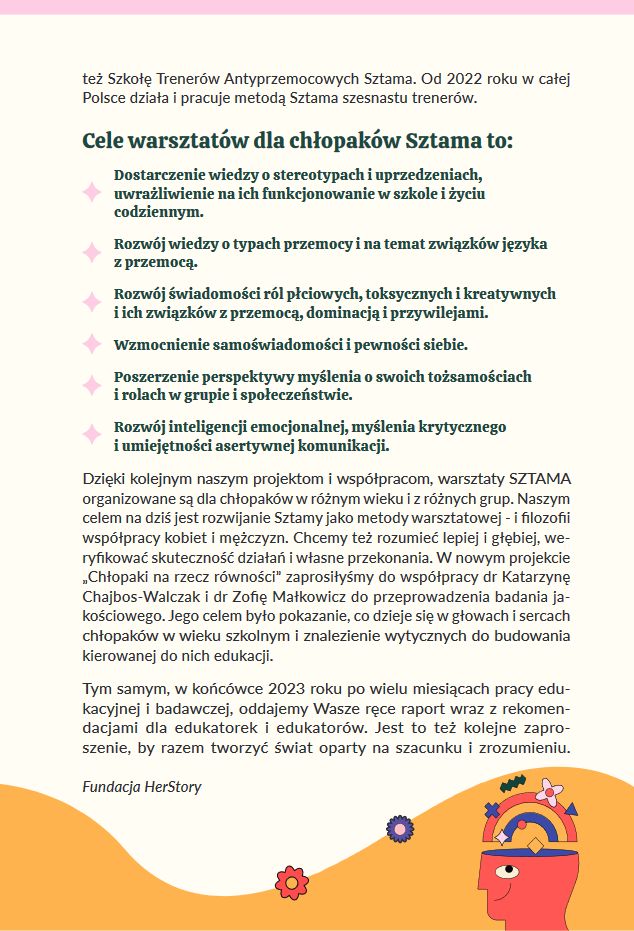Project: Boys for equality
Obszar 1. Ochrona praw człowieka (w tym kwestie związane z równością płci)
We identified the need for this project primarily by listening to the voices of the teenage female participants of our WenDo workshops. (…) They were the ones who asked us why we were teaching them assertiveness and self-defence, but not teaching boys non-violence and expressing the full spectrum of emotions, the girls from the HerStory Foundation say.
As it turns out, there is a gap in the approach to the creation of anti-violence education tools in Poland. Existing education programmes in this area have so far taken into account the gender perspective mainly in relation to girls and women, only superficially (if at all) touching on issues related to toxic masculinity patterns. In the beginning, it was therefore important to look for new solutions, tailor-made tools. This is how the idea of ‘Sztama’ was born – the anti-violence and anti-discrimination method of work with boys. It is the only method of its kind in Poland aimed at school-age boys.
It is better to understand, verify effectiveness and our own beliefs
The girls from HerStory also wanted to better understand the mechanisms of gender-based violence, so they decided to conduct a qualitative study on existing patterns of masculinity. They wished to have a better understanding of the audience of their actions and thus verify their effectiveness, but also their own beliefs. The aim of the study was to show what goes on in the minds and hearts of school-age boys and to find guidelines for building education targeted at them, they write.
At the beginning we were full of apprehension, says Katarzyna Chajbos-Walczak, one of the researchers. We assumed that during the interviews the boys were the experts. We are not the ones teaching them, they are the ones giving us knowledge. They straightforwardly talk about things on the basis of which we will create conclusions and recommendations from the research. We were straightforward in saying that what they share with us will be used for educational activities with their peers. We made sure from the very beginning that the boys had a good understanding of what the purpose of the research was and what we wanted to learn from them. We were open with them and non-judgmental, which set up the relationship between us differently (source of quote: Teenage boys dream of money and power. Have you wondered why?, OKO.press 3.02.2024, https://oko.press/nastoletni-chlopacy-marza-o-pieniadzach-i-sile).
The voice of the boys
This is a report written by the boys altogether, which means by the researchers, but in the voice of the boys,’Patryk Moszka, the ‘Sztama’ anti-violence coach comments. The reading is a confirmation of what I have noticed for a long time, observing the boys. But for me the most important thing is probably that this is the first such compendium of knowledge on how to work with boys. There are a lot of equally important books, both for and about boys, and studies being written recently, but here we don’t have memoirs, here we have researchers talking about the ‘here and now’. (…) This report doesn’t try to whitewash the situation, we learn about these things that are difficult. We have a description of the world – not about the boys having it worse now, but about the fact that we are all caught up in some strange game in this patriarchal system.
What do teenage boys want to be like?
What do teenage boys want to be like? What aspirations do they declare? We can read in the report that they want above all to be independent and to cope well in life. They dream of being successful and want other people to appreciate and admire them. They believe that the key to ‘coping’, is discipline and fighting against weaknesses. One area of such discipline is ‘control’ of the body and emotions. For the boys, a good sense of humour and a positive attitude are extremely important. They attach great importance to “ideals”, i.e. clearly defined, systems of values they are ready to defend. They care about having good relationships and want to start a family in the future.
If I had to say who this report is for, for me it is a report for absolutely every adult who has any contact with boys – which is pretty much everyone, adds Patryk. It’s obvious that I recommend it most to people who work with boys: teachers, educators, social activists, but also parents, but I think it’s also important reading for people who fall in love with men, or who are friends with men. It’s not a ‘how to talk to a man’ book, and that’s not what I mean, but it’s such a rendering for me of what’s inside boys.
The project’s website: www.fundacjaherstory.org/projekty/chlopaki-na-rzecz-rownosci/
Research report: „Teenage boys about discrimination and their everyday life. Guidelines for equality education”
More information about the project >>




